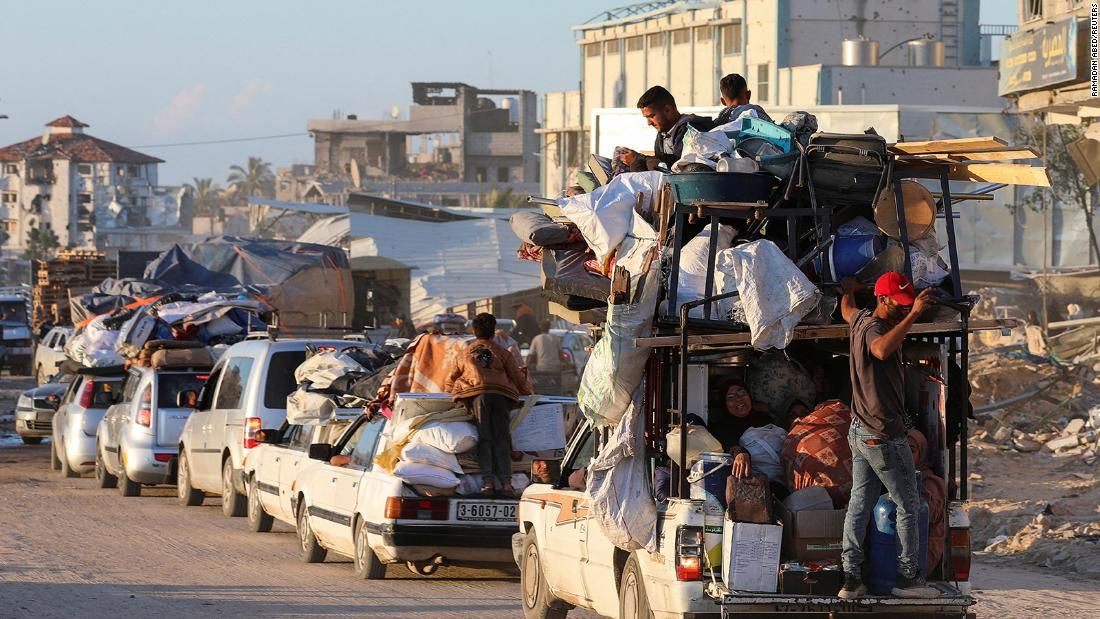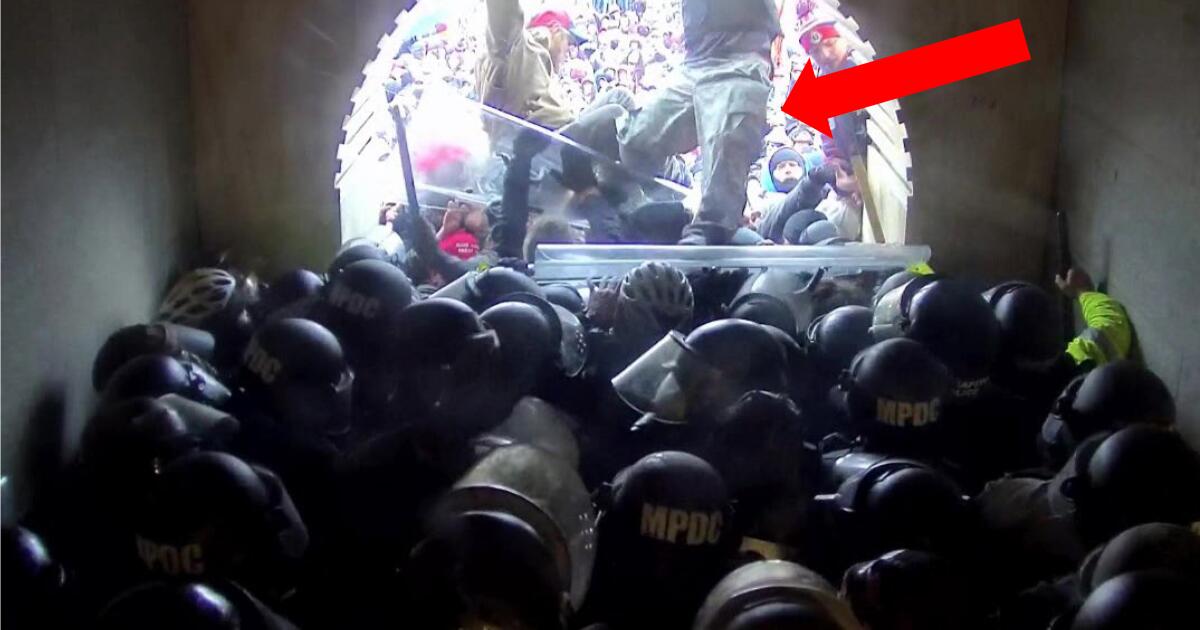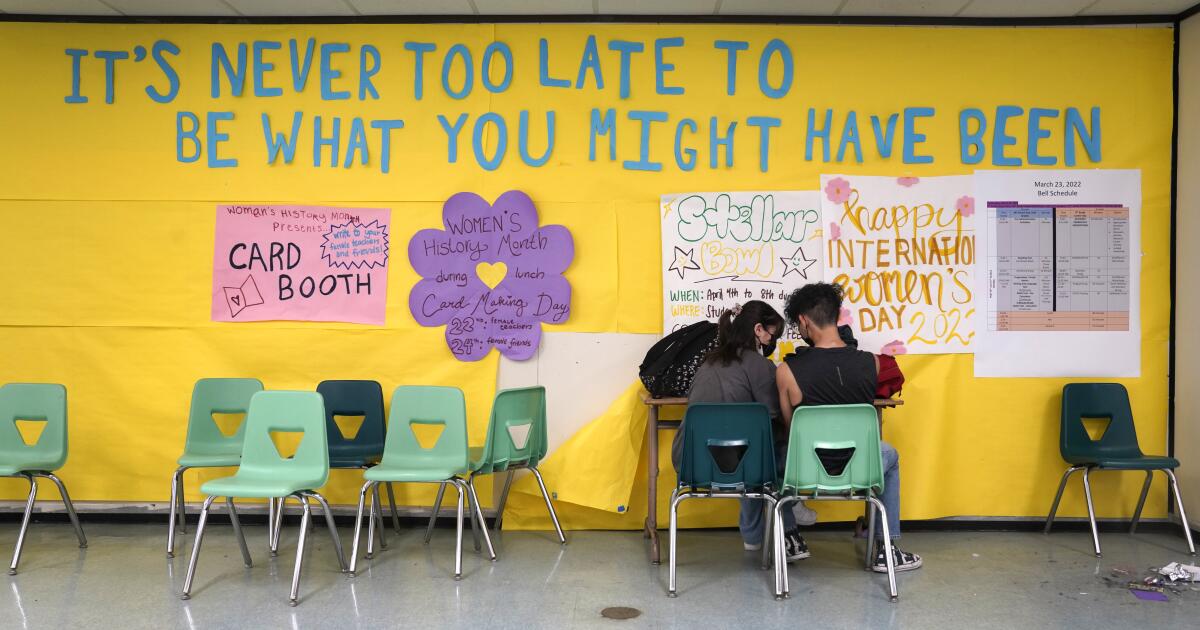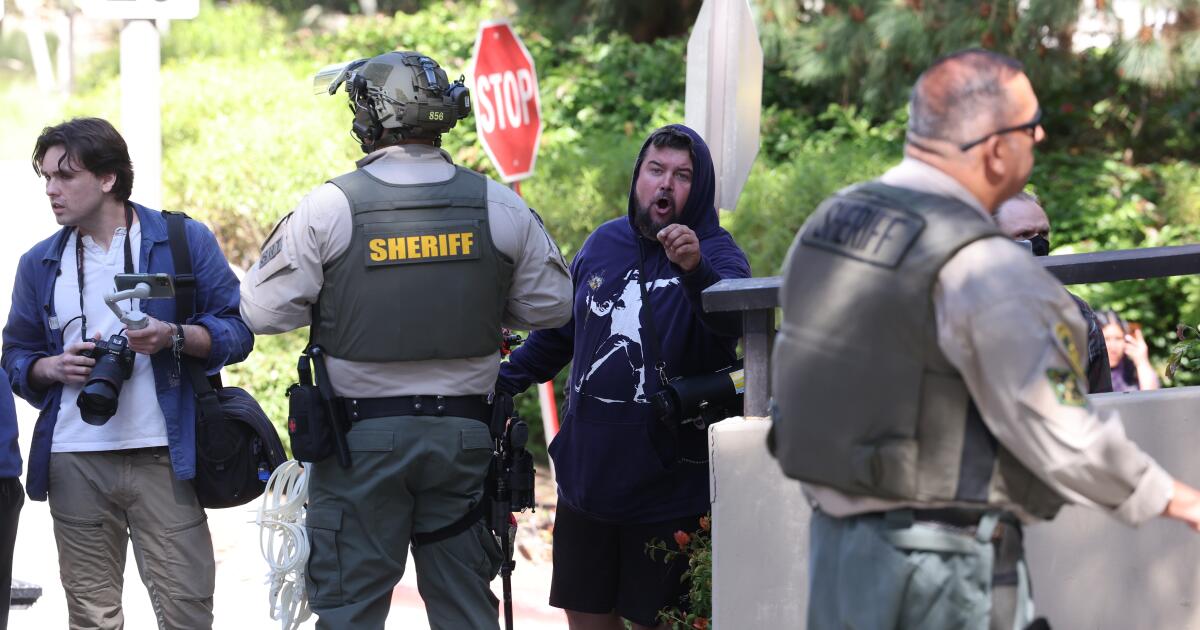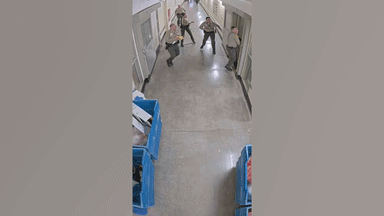More people are leaving Rafah following Israeli orders for civilians to leave much of the southern city, but some remain, too exhausted or sick to move again.
An elderly man, Hassan Aboul Einien, told CNN he did not want to leave his home in the Shaboura refugee camp. “But now I want to do it because there is no one left in the camp. “I want to see my wife and my daughter,” he said. “I'm going for a walk.” I don't have money for a car. “I also sent my wife and daughter on foot.”
Maher Soliman, who also lives in the Shaboura refugee camp, said he did not know where to go:
“No one supports us. It's just destruction. I left home with a T-shirt,” he said. Soliman said there was no safe area. “My 15-year-old daughter had burns on her body,” he said. “There was a strike in the building next door while she was preparing food.”
Ayman Abu Negira, who was driving a car with a broken windshield, said he was heading to Al-Mawasi, an area northwest of Rafah where Israelis have told people to go. He said he hopes it is a safe area, but he has his doubts. “They will probably attack to prevent it,” Negira told CNN.
But some planned to stay. “We are not afraid. We are exhausted but we are firm,” said an unidentified woman. Her tent stands alone in an area that she said was full of tents just a few days ago.
He said it was from Khan Younis. “I wish I could come home and I hope it's still standing,” she said. “I'm crying because I want to go home.”
The woman said she was tense the night before.
“Even the water delivery man is afraid to come. People are afraid to go out of stores at night to relieve themselves because they are afraid of quadcopters (Israeli armed drones)… We all have hepatitis. “There are many infections among people.”
The woman pointed to a scar below her ear and said it had been caused by a sniper bullet that had broken her jaw when she was trying to retrieve her belongings near the Nasser hospital. “There was a window covered by a blanket and the sniper brought me here,” she said.
“Why would they attack me? She was in a school. He was empty.”

